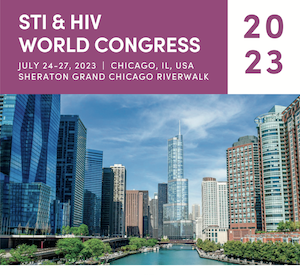Clinical Science
Session: Syphilis: Epidemiology and Clinical
O3.6 - Rapid Plasma Reagin (RPR) sero-reversion after treatment and its association with Prior Treponema Pallidum infection: analysis from the PICASSO cohort among people with early syphilis in Peru
Tuesday, July 25, 2023
11:15 - 11:30 CST
Location: Chicago 10

Edward Michael Reyes-Diaz, Sr., MD, Ms(c) (he/him/his)
Researcher
Centro de Investigación Interdisciplinaria en Sexualidad, SIDA y Sociedad, Universidad Peruana Cayetano Heredia
Lima, Peru
Primary Presenter(s)
Background: Prior Treponema Pallidum (TP) infection may alter host response to treatment in future infections. We aim to evaluate the association of TP reinfection status and time to Rapid Plasma Reagin (RPR) sero-reversion after treatment, among people with early syphilis from cohort in Peru.
Methods: We use data from the PICASSO cohort, conducted in Peru from May 2019 to August 2022. For this analysis, we included people with early syphilis (having ≥2-fold RPR titer increase from previous RPR within 12 months, or being diagnosed with primary syphilis) and a baseline RPR titer of ≥1:8. Individuals also had to have prior RPR and/or TP rapid-test (TPrt) results to differentiate “TP reinfections” (previous RPR ≥1:8 or positive TPrt) from “TP first-infections” (negative TPrt within 12 months prior to diagnosis). The main outcome was time to RPR sero-reversion, defined as time to first non-reactive RPR result after baseline treatment. Cox regression models were used to estimate unadjusted and adjusted Hazard Ratios (aHRs) by TP reinfection status, adjusting by HIV infection status and baseline RPR titer.
Results: We included 143 early syphilis cases with a median age of 29 years, 35% were HIV-infected (40% with viral load< 200 copies/ml), and 58% were “TP reinfections” cases. Participants were follow for a median of 272 days (interquartil interval: 175-366 days), and 28% (n=40) reached a non-reactive RPR after treatment (sero-reversion). Mean time to sero-reversion was lower among the TP first-infection compared to Reinfections (349 vs 528 days, p-value: < 0.001) (see Figure 1). Lower time to RPR sero-reversion was positively associated with lower baseline RPR titer (1:8 vs >1:32; HR:2.65, p=0.027), and being HIV-uninfected (HR:4.14, p=0.003). No association was found with age or syphilis clinical stage. In the adjusted model, less time to RPR sero-reversion was positively associated with TP first-infection (aHR: 4.89; p< 0.001).
Conclusion: Prior TP infection increases the time to RPR sero-reversion after treatment, which should be taken into consideration to prevent unnecesary overtreatment. Our findings provide insight to understand the complex host-immunity response to TP infection and emphasize the need for further research to improve tools for diagnosis treatment control.

